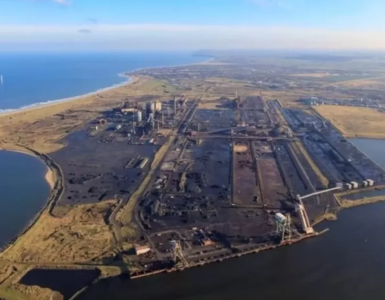Cadent – Funding bid success for EMstor set to explore geological hydrogen storage potential in the East Midlands.
EMstor, a consortium led by Cadent, the UK’s largest gas distribution network, and partnered with Star Energy Group, British Geological Survey (BGS), Net Zero Strategy and the University of Edinburgh, has been awarded Discovery funding by OFGEM/Innovate UK’s Strategic Innovation Fund (SIF).
The funding will be used to undertake an innovative new study to evaluate the geological storage potential in the East Midlands region that is set to be served by Cadent’s future 100 per cent hydrogen pipeline.
The EMstor study will initiate a crucial mapping process to identify long-term large scale geological storage for hydrogen gas that can provide help accommodate peak demand scenarios for industrial and power generation customers that are connected to Cadent’s 100% hydrogen pipeline in the region.
Hydrogen producers connected to local storage by Cadent’s pipeline will be able to maximise electrolytic low carbon hydrogen production during times when renewable energy is abundant, helping to balance the power system and lock the energy into hydrogen molecules, to be stored and used later by industry.
🔥 What about we co-host a webinar? Let's educate, captivate, and convert the hydrogen economy!
Hydrogen Central is the global go-to online magazine for the hydrogen economy, we can help you host impactful webinars that become a global reference on your topic and are an evergreen source of leads. Click here to request more details
The EMstor study is the first of its kind in the area and will undertake a feasibility assessment of the East Midlands geology to host storage technologies.
It will investigate options such as dedicated hydrogen pipelines and subsurface silos; lined rock caverns and shafts excavated from intact rock and lined with cement and steel; salt caverns, solution mined from deep deposits of salt and porous rock storage including depleted hydrocarbon fields or deep saline aquifers, where hydrogen is held in the gaps between the rock grains and securely held in place by sealing caprocks.
The East Midlands has numerous depleted oil reservoirs which have potential for repurposing to create hydrogen storage. By doing this, EMstor will generate and deploy a state-of-the-art understanding of reservoir distribution and characterisation and will facilitate a comprehensive understanding of what is possible for hydrogen storage at scale in the local area.
Sally Brewis, Head of Regional Development at Cadent, said:
It’s such exciting news that this funding bid for our EMstor study has been a success.
“This evaluation could potentially lay the foundations for a hydrogen storage demonstration project in the area through subsequent funding rounds, which could be game-changing for the hydrogen economy in the region and will enable a more rapid decarbonisation of industry and power generators that want to switch to hydrogen. Consideration of dis-used oil reservoirs as hydrogen stores is a new frontier for the industry and could have far-reaching benefits if it’s shown to be possible through this work.”
Dr Katriona Edlmann, Chancellor’s Fellow in Energy at the University of Edinburgh, said:
The geological storage of hydrogen will play a vital part in delivering Cadent’s ambitions for a 100 per cent hydrogen network in the East Midlands and South Yorkshire.
“The University of Edinburgh is delighted to be working with BGS to undertake this first of its kind feasibility study into the suitability of the geology of the Midlands to host medium and large-scale underground hydrogen storage technologies and enable the flexible use of hydrogen in the region.”
Edward Hough, Research lead, Underground Energy Storage at the British Geological Survey, said:
The natural geology of the East Midlands will play an important role in supporting the use of hydrogen in the region.
“Storing hydrogen gives flexibility to the energy system, allowing excess hydrogen to be stored for use during periods when demand exceeds supply. In this project the British Geological Survey will build on our extensive laboratory and mapping programmes to help identify areas of the underground geology that may represent future exploration targets for hydrogen storage in bedrock.”
Fay McAnulla, Director, Net Zero Strategy, said:
Having access to hydrogen storage facilities in the Midlands is important as we develop a hydrogen economy.
“Net Zero Strategy will lead on project management and contribute to stakeholder engagement and dissemination activities for the project.”
This is the beginning of a vital evaluation programme that will revolutionise our understanding of how low carbon hydrogen can be stored at scale and be readily available for power generation and industrial users in the East Midlands. This will help to keep employment in the region, build energy system resilience, lower customer bills, and grow a greener society.
READ the latest news shaping the hydrogen market at Hydrogen Central
Cadent – Funding bid success for EMstor set to explore geological hydrogen storage potential in the East Midlands. source








